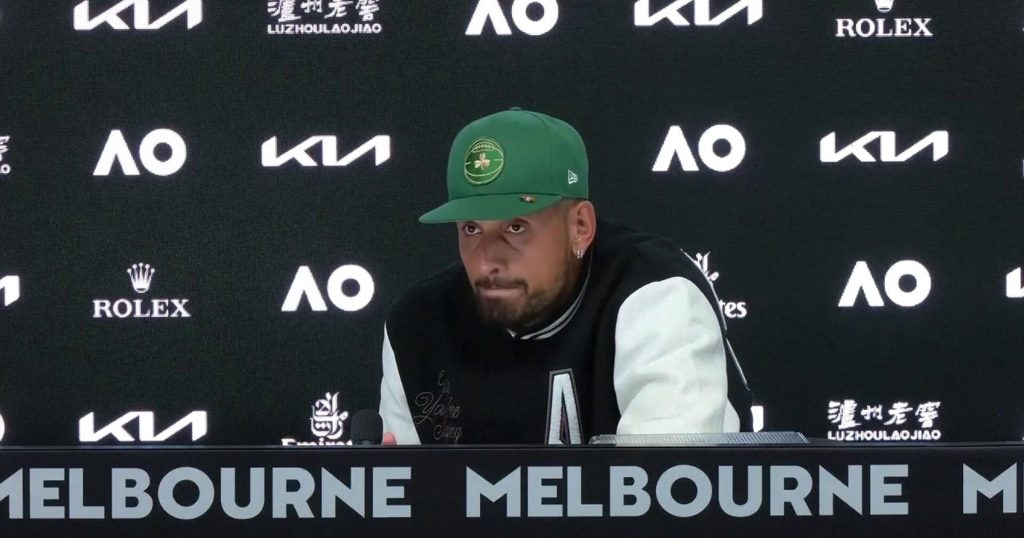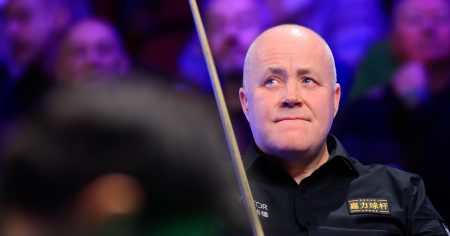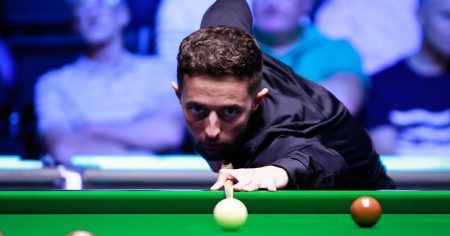Nick Kyrgios’s first-round exit at the 2025 Australian Open against wildcard entrant Jacob Fearnley sent shockwaves through the tennis world, not just for the upset itself, but for the enigmatic Australian’s post-match comments hinting at a potential retirement. Kyrgios, known for his explosive talent and equally volatile temperament, cut a dejected figure in the press conference, his words suggesting a deep weariness with the professional circuit and a struggle to maintain the motivation required to compete at the highest level. While he stopped short of definitively announcing his retirement, the tone and substance of his remarks painted a picture of a player contemplating the end of his career sooner rather than later. His statements, laced with both frustration and a hint of resignation, resonated with a career marked by both dazzling highs and controversial lows, leaving fans and pundits alike to speculate about the future of one of tennis’s most captivating, yet unpredictable, figures.
Kyrgios’s potential departure looms large over the sport, casting a shadow over a career that promised so much but ultimately delivered in fits and starts. He burst onto the scene as a prodigious teenager, possessing the raw power and unorthodox shot-making ability to challenge the very best. His victories over tennis giants like Roger Federer, Rafael Nadal, and Novak Djokovic showcased his immense potential, solidifying his status as a genuine threat on any given day. However, his prodigious talent was often overshadowed by on-court outbursts, clashes with umpires, and a perceived lack of dedication to the rigorous demands of professional tennis. This internal conflict, between the undeniable talent and the temperamental nature that often sabotaged it, defined his career, making him a compelling, if frustrating, figure for fans and commentators alike. The question of “what if?” hangs heavy over his career, a constant reminder of the potential that may never be fully realized.
The loss to Fearnley, a relatively unknown player on the Challenger circuit, seemed to crystallize Kyrgios’s growing disillusionment with the sport. While acknowledging Fearnley’s solid performance, Kyrgios’s post-match comments focused less on the specifics of the match and more on a deeper sense of fatigue and a lack of motivation to continue grinding on the tour. He spoke of the constant pressure, the relentless travel, and the mental toll that competing at the highest level takes, hinting at a growing disconnect from the passion that once fueled his game. This sense of burnout, coupled with the frustration of unfulfilled potential, fuelled speculation that the Australian Open defeat could be one of his final appearances on the professional circuit.
The speculation surrounding Kyrgios’s future is further fueled by his evolving priorities and interests outside of tennis. In recent years, he has become increasingly vocal about his philanthropic endeavors, his passion for basketball, and his desire to spend more time with family and friends. These off-court pursuits seem to hold a greater allure than the relentless grind of the professional tennis tour, suggesting a shift in his focus and priorities. He has also spoken openly about the mental health challenges he has faced, highlighting the importance of prioritizing well-being over the pressures of professional sport. This growing emphasis on personal fulfillment outside of tennis suggests that, even if he doesn’t officially retire, his commitment to the sport may be waning.
The reaction to Kyrgios’s potential retirement has been predictably mixed. Some lament the loss of a unique and entertaining talent, recognizing the void his absence would leave in the often-sterile world of professional tennis. They acknowledge his flaws but appreciate the raw emotion and unpredictability he brought to the game. Others, however, view his potential departure with a sense of relief, arguing that his on-court antics and perceived lack of professionalism detract from the integrity of the sport. They point to his numerous code violations, his clashes with officials, and his sometimes dismissive attitude toward the game as evidence of a player who never fully embraced the responsibilities that come with being a professional athlete. Regardless of perspective, there is a general consensus that his departure, should it happen, would mark the end of an era in tennis, closing the book on a career filled with both brilliance and controversy.
Ultimately, the decision rests solely with Nick Kyrgios. Whether he chooses to retire imminently, take an extended break from the sport, or attempt one last resurgence, his legacy will remain complex and multifaceted. He will be remembered as a player of immense talent, capable of beating anyone on his day, but also as a figure whose temperament and inconsistency prevented him from reaching his full potential. He will be remembered for his thrilling shot-making, his fiery personality, and his willingness to challenge the conventions of the sport. He will also be remembered for his controversies, his outbursts, and his unfulfilled promise. Whatever the future holds, Nick Kyrgios will undoubtedly remain a captivating and controversial figure in the annals of tennis history.














